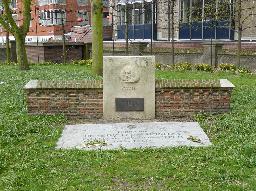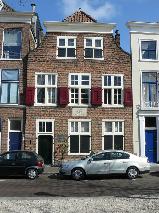Spinoza, Benedict de |
| PHILOSOPHER (THE NETHERLANDS) |
|
BORN 23 Nov 1632, Amsterdam, Noord-Holland - DIED 21 Feb 1677, Den Haag, Zuid-Holland BIRTH NAME Spinoza, Baruch GRAVE LOCATION Den Haag, Zuid-Holland: Nieuwe Kerk, Spui (now in mass grave near the church) |
|
Baruch Spinoza (later known as Benedict de Spizona) was raised in the Portuguese Jewish community in Amsterdam. His parents were Sephardic Jews. His father Miguel de Spinoza was a merchant. After a traditional Jewish upbringing he started studying Latin in 1653 with the freethinker Frances van den Enden. After his father died in 1654 his sister Rebekah disputed his inheritance. He won a court case but gave it to her afterwards. The family business ran into trouble and eventually he made way for his younger brother Gabriel and devoted himself to philosophy as well as optics. In 1656 he was banned from the Jewish community for his views. He worked as a private scholar until he was expelled from Amsterdam. He moved to Rijnsburg and Voorburg before he settled in The Hague in 1670. In Rijnsburg he started his "Principles of Cartesian Philosophy" and his best known work "Ethics". In 1670 "Theological Political Treatise" was published. In it he defended Jan de Witt against the Prince of Orange. It was published anonymously but soon it author became known and in 1674 it was formally banned. In the Hague he lived on a small pension from Jan de Witt and an annuity from the brother of his friend Simon de Vries who had died. In 1676 he completed "Ethics" and in that same year he met with Leibiz for a discussion of this work. After he returned to Germany Leibig published ideas from it without permission. He was also visited by Henry Oldenburg. In 1676 his health started to fail and he died in 1677, aged only 1677. "Ethics" was published in 1677 by his friends after his death. Only after his death the importance of his work became clear. His rationalism made him a precursor for the enlightenement of the 18th century. |
| Images |
Sources • Baruch Spinoza - Wikipedia (EN) |




